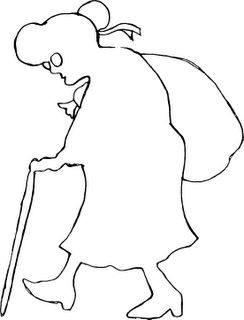While sitting at my computer tonight, I gradually became aware of nearby fire trucks. I’ve become so accustomed to hearing them at work (my office in downtown
But the close proximity and obvious multiple vehicles got my attention. I looked out the kitchen window to see three fire trucks below. First thought: Is there a fire in my building that I don’t know about? Second thought: Go outside and see.
One truck deployed its ladder to the roof of the building across from me. A fireman went up on the roof, while others were coming out of several of the front stairwells. Eventually they left—no fire, one fireman told an onlooker.
Relief. I know no one in that building, but I really didn’t want to see a battle against fire and destruction, an old fear of mine.
Interestingly, a couple of memories were triggered.
The first event I recalled occurred when I was around 12. Returning with my parents from a visit in town, we saw the last stages of our neighbors’ barn burning down. In my own convoluted logic, I thought the fire happened because I’d worn a new clothes combination that night, and I vowed never to wear it again.
The fact that fires occurred a bit too often, more devastatingly (at least two of our neighbors had lost their houses to fire before we’d moved there), didn’t correct my conviction. Age of reason? But in those days before smoke alarms and increased fire awareness, much was lost to fire in rural areas. Even now, buildings in the country are usually lost long before the fire company can get there.
The second memory prompted a startling realization.
I was perhaps eight years old when the junior high school in town burned down, Memorial Day weekend. My mother heard about it on the radio, and insisted that we go watch. So my family piled into the car and drove the 10 miles into town to see it. Really.
We followed the battle together with hundreds of onlookers. The school was three stories high (if my memory serves), stretched along two blocks. As the fire consumed the mostly wooden interior, we saw the floors and desks crash through to the bottom. The roof caved, too.
The firemen successively trained their hoses on sets of windows where the fire was burning, and as each window broke under pressure of the water, the crowd cheered. (Was Alice Cooper there? “School’s out forever!”)
The fire was thought to be out that night, but it resumed the next day, consuming the part of the school that had survived.
Years later I saw a film in school on fire safety, which, I now believe, included footage from the devastating fire at Our Lady of the Angels school in
Here’s the thing that never struck me as odd before tonight. My mother, normally a law-abiding citizen (except for occasional civil disobedience), was positively gleeful. Obviously neither my brothers nor I took it to mean that we could torch anything, but what if we had been horribly susceptible to such “role-modeling”?
Mom had attended the school decades before, and it was old then. Was the experience so awful for her that even in her mid-40s, the burning was cause for celebration? Now I realize there’s yet another part of her I’ll never know.
Rumors went around that the principal—who had been principal during my Mom’s time—set the original fire and/or rekindled it so as to destroy the entire school. In a lot of rural areas then, school bonds were terribly unpopular, and the rumors went, fire was the only way to replace a school that was beyond repair.
Such a pile of contemplation over one false alarm.

1 comment:
I know you would only use your superpowers for good and never for evil. Surely changing to yet another new combination of clothes would have doused the fire, if the first combination caused it! Poor kid! How do we reckon these things?
Post a Comment